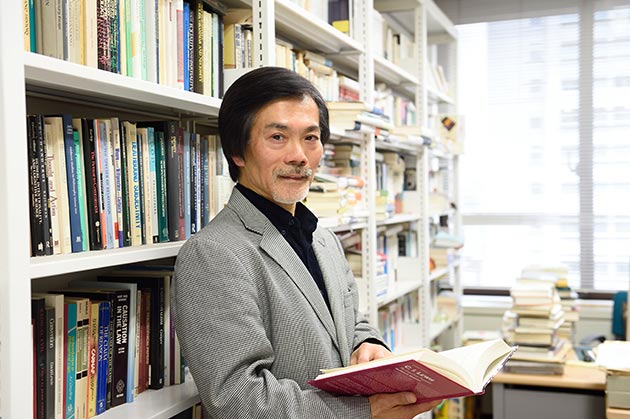When you hear the word "philosophy," what kind of image comes to mind? There are probably many people who think it's "difficult," "I don't know what it's useful for," or "it has nothing to do with me."
In fact, philosophy is much closer to us than we think, and perhaps it is precisely because it is so close that it is difficult to understand. As a clue to thinking about "What is philosophy?", let me tell you about my "original philosophical experience" that I encountered when I was in elementary school.
When I was in the early grades of elementary school, a friend in my class was transferring to a school in Kyushu. We were all sad to say goodbye to our friend, saying, "It's going to be sad that we'll never see each other again." Around the same time, there was a funeral for an acquaintance, and the adults around me at the funeral were also sad to say goodbye to the deceased, saying, "It's going to be sad that we'll never see each other again."
As I attended my friend's transfer and the funeral of an acquaintance, a vague question began to arise in my mind. Is there really such a big difference between "moving far away and not being able to see each other" and "dying and not being able to see each other"? What exactly is the difference? Aren't they the same thing? That was my question.
When I was in elementary school, I felt that there was no difference between the two in the sense that you would never see each other again, and that they were the same thing. I thought that separation due to a change of school and separation due to death were the same in the sense that you would never see that person again. I think this was also influenced by the fact that I had a feeling of dissatisfaction (is death really that sad?) when I saw the grieving adults at funerals.
When I said things like, "Going far away and dying are the same thing," the adults around me denied it with angry looks on their faces, saying, "They're not the same thing." "They're two completely different things," the adults said.
For example, adults would explain that "It's a matter of whether you'll be able to meet in the future or not." You can't meet someone who's died, but you can still meet friends who are far away if you want to... In other words, if you're alive, there's a chance you'll meet them.
I was not a very docile child, so I was not convinced by this explanation. No matter how much they said "You can meet if you want to," if you don't actually meet them (I never saw my friend who moved away after that), then that "not meeting" is no different from "not meeting" a dead person... I felt that way.
I also thought this. Adults say that "the difference is whether or not you have the possibility of meeting," but if it's okay to take "possibility" into account like that, then we can also consider the "possibility of dead people coming back to life" or "the possibility of meeting in the afterlife." So even if we think about "whether or not we'll be able to meet in the future," surely the difference between someone who is dead and can't meet and someone who is far away and can't meet doesn't disappear after all... Because in both cases, there is the same "possibility." In addition to "not actually meeting," the two are not different in the "possibility of meeting," either. When I thought about it like that, my initial intuition (that they were the same thing) returned, and I remember feeling relieved.
This is what I would call my "philosophical formative experience." Of course, now that I've continued studying philosophy and become an adult, I can take my questions even further. For example, can the possibility of "going to the afterlife and meeting" and the possibility of "going to Kyushu and meeting" be called the same "possibility"? Or, far-away friends seem to be in the same space and time no matter how far apart they are, but what about dead people? Or something like that. But let's leave that aside. Even at the stage of this "formative experience," we can extract important points (characteristics) when thinking about "what is philosophy?"
One is to "change one's perspective and turn things upside down." Or you could say "doubt" or "question" in other words. The distinction that adults take for granted (between separation due to a transfer of schools and separation due to death) becomes uncertain when you change your perspective, and even if you try to distinguish it by changing your perspective again, if you change your perspective again, it becomes unclear again... Rather than thinking "straightforwardly" or "smoothly" and trying to finish quickly, you continue to "stumble" and update the scenery you see... In this way of thinking, you can see the original form of philosophy.
The other point is "consciously making twists and turns in one's thinking." When we normally think about things "straightforwardly" and "smoothly," we rarely think about the stages or order of our thinking. However, what is evident in the episode above is a conscious twist and turn, from "different" to "same," from "same" to "different," and back again from "different" to "same." By consciously following such a zigzag path that swings in opposite directions, one's thinking becomes more diverse and broadens. The original form of philosophy can be seen in the way thinking progresses, consciously putting this "swing" into practice.
Philosophy is about relying solely on the ability to continue thinking persistently, tackling questions that may or may not have answers, and about vividly depicting this in practice.



